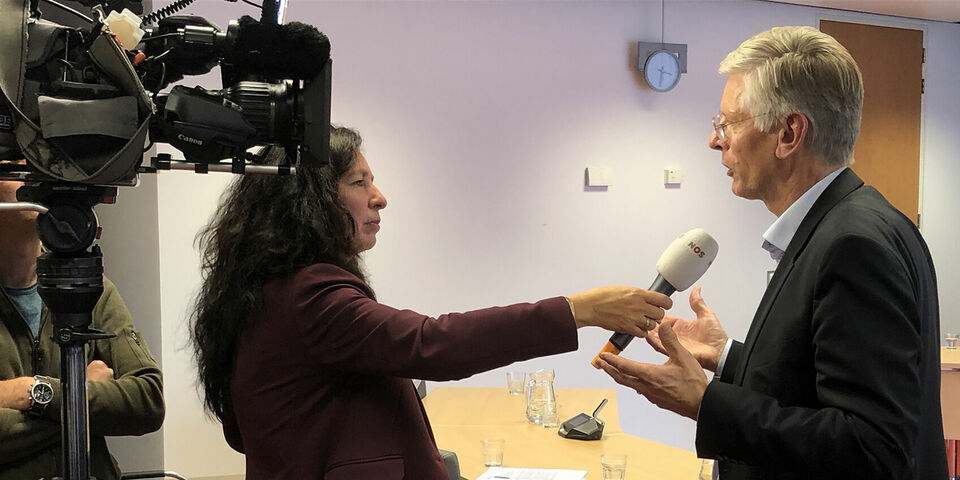Rector Baaijens explains women policy
Rector Frank Baaijens looks back with a positive feeling on his visit to the Netherlands Institute for Human Rights in Utrecht this afternoon. There he was able to explain the reasoning behind TU/e’s women-only hiring policy, which has been in force since July 1. TU/e has to answer for its policy because anti-discrimination agency RADAR, which received 49 complaints, wants to know whether the measure is legally tenable. Despite leaving the hearing with a positive feeling, Baaijens says that he cannot judge whether his arguments will be enough to convince the Institute of the measure’s legal tenability.
Rector Frank Baaijens had to appear in Utrecht today to clarify exactly what the so-called ‘woman policy’ entails, and provided the Netherlands Institute for Human Rights with arguments as to why TU/e believes the measure is legally justifiable. Baaijens: “That was what the committee members, three in total, wanted to know: how does it work exactly, what is the university’s objective with this measure, and which exception rules apply. Anti-discrimination agency RADAR played no part during this hearing.”
The committee members weren’t all that well informed about some issues, Baaijens noticed, “and they sometimes used outdated concepts, such as the permanent staff position principle, which we haven’t worked with at TU/e for quite some time now. The position someone has attained within a department doesn’t matter at our university any longer, instead we look at quality and achievements. I also noticed incomprehension when the issue of how we deal with filling vacancies came up. At TU/e, we’ve moved away from the idea of sitting around and waiting for an application to come in a long time ago. We’ve been using search committees that actively search for the right talent ever more frequently. And they do so both at home and abroad. Because many of our researchers nowadays are internationals.”
Matter of interpretation
The committee also wanted to have access to historical data, and Baaijens says that he expects to receive notification from the committee by mid-December telling him which additional information exactly is required. “As far as we are able to provide that information, we will comply, naturally,” the rector says.
It is difficult to make a statement at this point about whether the Institute will ultimately find his arguments legally sustainable. “That depends on their assessment framework, and it’s a matter of interpretation in the end anyway.”
The Executive Board will carry out an interim evaluation of the measure in January. Baaijens: “We promised our University Council to do so, and we will also send the results of that evaluation to Utrecht.” Baaijens says that the policy has so far resulted in the appointment of three female professors, one associate professor and sixteen assistant professors. “But that’s only an indication at a given moment in time.”
Baaijens expects this process to proceed somewhere in the first half of 2020.


Discussion